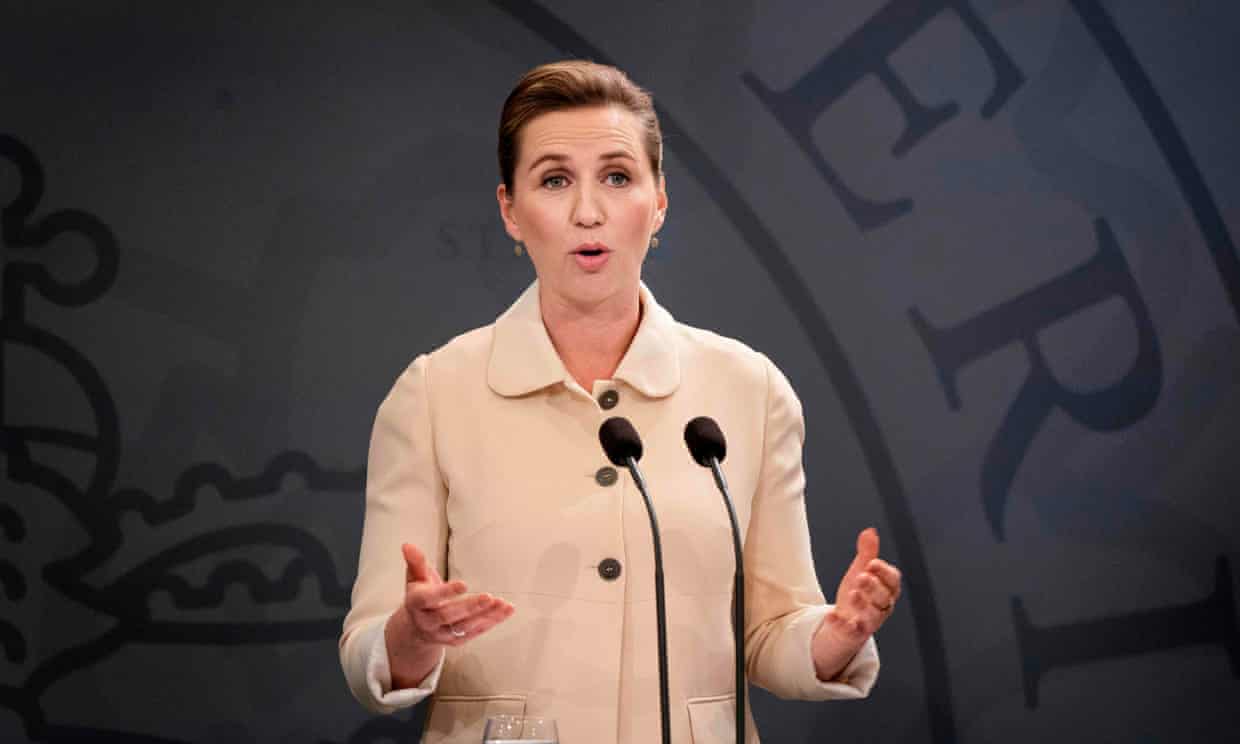
Norway
Norway and Denmark drop mutual border controls - but exclude Sweden
Scandinavian neighbour barred for now because of higher coronavirus death toll
by Jon HenleyNorway and Denmark are to drop border controls between the two countries but have excluded their Scandinavian neighbour Sweden, which has taken a lighter-touch approach to the Covid-19 pandemic and suffered a far higher death toll.
The Danish prime minister, Mette Frederiksen, told a news conference in Copenhagen on Friday that restrictions on Norwegian nationals entering the country, as well as on citizens of Iceland and Germany, would be lifted from 15 June.
“Denmark and Sweden have a close relationship and that will continue in the future,” Frederiksen said. There was “a strong desire to find a solution with our neighbour, Sweden”, she added, but Denmark and Sweden “are in different places when it comes to the coronavirus, and this affects what we can decide on the border”.
Norway’s prime minister, Erna Solberg, said at a simultaneous Oslo event that Norway would admit only Danish citizens for now, but that her government was talking to Sweden, Finland and Iceland about including them at a later date.
Solberg said she had twice spoken to the Swedish prime minister, Stefan Löfven, but had entered a bilateral agreement with Denmark “because we have a similar infection situation … The infection situation looks different in Sweden”.
While her objective was “a common Nordic regulatory framework”, she said, “it is going to be hardest to find a solution for Sweden. But there are regions in Sweden with a low level of infection where we might be able to find a solution.”
The decision by Denmark and Norway to exclude Sweden from an early Nordic “travel bubble” is a blow to Stockholm. The Swedish foreign minister, Ann Linde, said this week that such a move would be “a political decision” and not justifiable on health grounds.
Anders Tegnell, Sweden’s chief epidemiologist and the main architect of the country’s coronavirus strategy, said dialogue between the Nordic neighbours was “continuous. We can certainly find good solutions to this.”
An MP from the Swedish border city of Malmö, Niels Paarup-Petersen, told the Local website he had “hoped that we wouldn’t be treated differently. The numbers are a bit different on a national level, but I’d hoped they’d look more at a regional level.”
Sweden has closed schools for the over-16s and banned gatherings of more than 50, but has only asked – rather than ordered – people to avoid non-essential travel and not go out if they are elderly or ill. Shops, restaurants and gyms have remained open.
Polls show a large majority of Swedes support and have generally complied with the government’s less coercive strategy, which starkly contrasts with the mandatory lockdowns in many countries, including Norway and Denmark.
But the policy, which Tegnell has said aimed to slow the spread of the virus enough for health services to cope, has been heavily criticised by some Swedish experts, and the country has recorded a death toll many times higher than its neighbours’.
Sweden’s 4,350 deaths represent a toll of 419 per million inhabitants, compared with 44 in Norway, 98 in Denmark and 57 in Finland. Its per million tally is, however, lower than the corresponding figures of 548, 570 and 580 in Italy, the UK and Spain.
Frederiksen, who placed Denmark in strict lockdown as early as 11 March, said she hoped solutions might be found to allow travel between Denmark and certain Swedish regions. A decision on travel from other countries in Europe’s passport-free Schengen zone would be taken later, she said.
From 15 June, Finnish, Norwegian and Icelandic visitors to Denmark may visit Copenhagen for the day but may not stay overnight, the government said, while visitors to other parts of the country would have to book in advance to stay at least six nights.
Sweden announced on Friday that its senior high schools and universities could begin re-opening from 15 June.